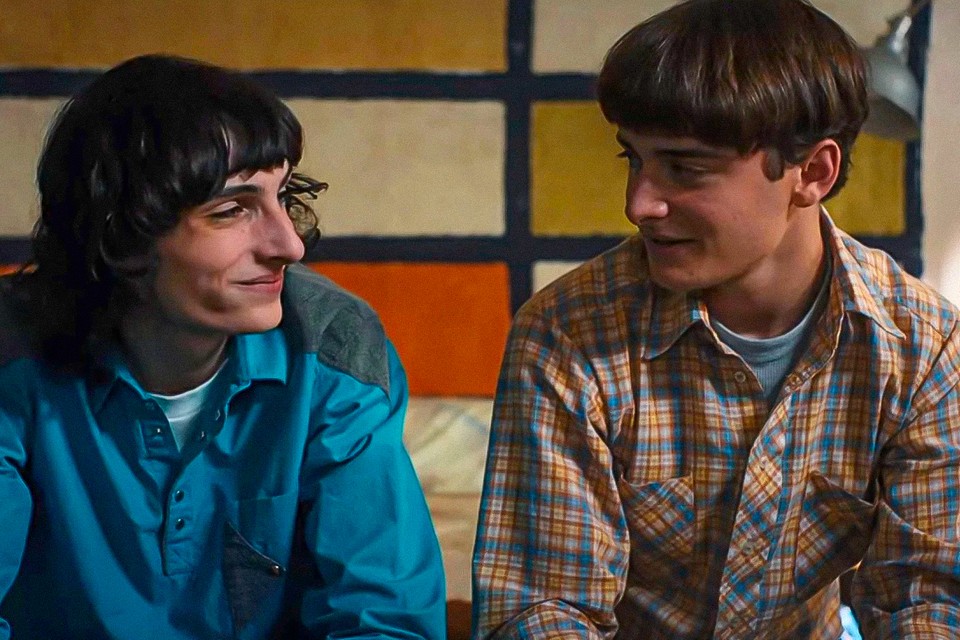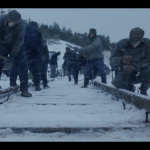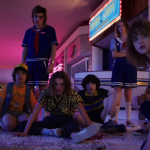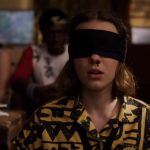Stranger Things Season 4: Ignoring Queerness is Not Revolutionary
It’s exhausting being told by cisgender heterosexual people that leaving a character’s queerness ‘up to interpretation’ is somehow revolutionary. The latest platitude in this regard comes from Stranger Things star Noah Schnapp.
To be completely fair to Noah Schnapp, he’s only 17-years-old. He likely hasn’t been paying attention to issues with LGBTQ+ representation in the media. I don’t expect a teenager to understand the nuances of how the queer community has been treated over the past few decades. Unfortunately, he’s just a part of system that perpetuates the idea not talking about a character’s sexuality is somehow a good thing. So now Stranger Things has been added to the list of shows that perpetuate this idea, but it’s not the actor’s fault. It’s the system’s fault.
That said, this is still absolutely infuriating. This happens to us a lot. It most recently happened to fans of Supernatural. The narrative very clearly stated one character loved another character, but some of the actors chose to backtrack and state it was ‘open to interpretation.’ That wasn’t the first time fans who have queer readings of characters have been belittled in such a way. Based on this most recent interview with some of the Stranger Things cast, it’s clearly not the last, either. It’s an endless cycle.
In an interview with Schnapp and Brown for Variety, [Schnapp had an] ambiguous perspective on how the show’s writers, led by creators and executive producers Matt and Ross Duffer, have approached Will’s sexuality.
“I feel like they never really address it or blatantly say how Will is,” he says. “I think that’s the beauty of it, that it’s just up to the audience’s interpretation, if it’s Will kind of just refusing to grow up and growing up slower than his friends, or if he is really gay.”
Stranger Things and Queerbaiting
Queerbaiting has been around for a long time. In fact, as soon as I mention that word, you probably have your own bait in mind already. We’ve kind of been run into the ground with it over and over and over again. Though this is often thought of in relation to ships (Destiel, Sterek), it doesn’t always have to be. Anything that they use to pull in a queer audience with a promise of representation, then does not actually deliver, can be classified as queerbaiting.
The two sub-tropes of queerbaiting at play in this situation are specifically called Ambiguously Gay and Queer Subtext.
Ambiguously Gay
[The character displays] much onscreen evidence of exclusive same-gender attraction, but nothing is ever explicitly confirmed one way or another. The ambiguity can range all the way from from blink-and-you’ll-miss-it implications to all-but-confirmed.
In the case of Will Byers, Mike specifically says that he doesn’t ‘like girls.’ This implies that he’s either homosexual or asexual. Fans have spotted other hints, too. It’s a common theory at this point and scenes have been picked apart thoroughly looking for clues. There’s plenty of material to support it. It’s never explicitly stated, though.
These things place it squarely in the ‘ambiguously gay’ trope. For many, these things are enough confirmation about his sexuality. It’s all they need to include him on a list of queer characters. But when the actor walks it back, it sort of makes these statements ambiguous. Is he really a queer character? Or are we just being baited so they can get inclusion points without actually giving us inclusion itself?
Queer Subtext
Though romance is important in many works, bonds of friendship between those of the same sex form some of fiction’s most significant relationships. One common method of playing with these close relationships is to portray them similarly to romantic relationships, though the characters may feel nothing sexual for one another. For example, two male friends may bicker in an exaggerated manner, mirroring how television normally depicts husbands and wives, or one friend may voice jealousy of another with lines lovers normally use.
A lot of viewers have picked up on subtle hints that Will may have a crush on Mike. This is most prominent in season four, though others have pointed to scenes in previous seasons as well. This places it squarely in the ‘queer subtext’ category.
If the second half of season four ends up continuing with this subtextual crush plot, they could very well hit on the tropes Gayngst and Incompatible Orientation. These are frustrating and overused tropes that writers like to exploit so they get points for representation, but don’t actually have to include a same-sex pairing in the plot. We’ll see how those tropes play out, I suppose.
But Stranger Things has Robin! It’s not queerbaiting!
Robin is really good representation! And that’s awesome. She comes out to Steve and is shown having same-sex crushes. She’s a well rounded character and her sexuality is present, but not her only trait. Perfect! I adore Robin and will sing her praises as loudly as I can. I’m grateful for her.
However, just because they did right by one character doesn’t mean they can’t screw up the presentation of another. This is especially true considering same-sex attraction between women has been more acceptable to mainstream society than it is between men. When that’s taken into consideration, it’s especially telling that the good representation is with a woman and the bad representation is with a man. They went all out with the ‘safer’ option, but held back on the one that may not be as acceptable by society.
I’ll never argue against the inclusion of queer women, though. We have enough terrible tropes on our plate. We need more queer women. We also need more queer men. And more queer non-binary character. Unfortunately, though, there’s still a weird double standard when it comes to what writers are willing to portray on screen and it’s worth noting.
But These Are Children!
I know for a fact that some homophobes are going to push back on our ire over this because ‘they are children.’ I would like to point out, however, that there are numerous opposite-sex relationship with characters the exact same age. El and Mike, and Max and Lucas are shown dating each other on screen very blatantly. If you don’t have a problem with that, perhaps you are just a homophobe.
Additionally, I suspected I was queer when I was as young as seven, and really started to think about it around twelve. It’s perfectly natural for people to think about this when they’re teenagers. This is actually the age when a lot of people start to notice, so put the ‘but the children!’ cries on hold please.
It’s sad that we even have to put this disclaimer like that here, but homophobia is rampant everywhere. Here’s hoping we get a little more growth in the series.
Don’t forget to check out our review of Stranger Things season 4.
Author: Angel Wilson
Angel is the admin of The Geekiary and a geek culture commentator. They earned a BA in Film & Digital Media from UC Santa Cruz. They have contributed to various podcasts and webcasts including An Englishman in San Diego, Free to Be Radio, and Genre TV for All. They identify as queer.
Help support independent journalism. Subscribe to our Patreon.
Copyright © The Geekiary
Do not copy our content in whole to other websites. If you are reading this anywhere besides TheGeekiary.com, it has been stolen.Read our








Queerbaiting is tyrannical. I don’t watch Stranger Things but it is most important that people know this.
Thank you so much for this!!! This is so important. Queer people need to be in writing rooms and need to be listened to because I’m tired of being profited off of.